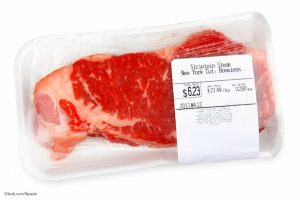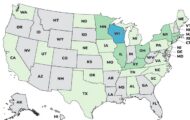Most Americans want to know where there meat comes from and think packaging that says so is a good idea, according to a new survey by the Consumer Federation of America. Results of the survey come as the U.S. Department of Agriculture (USDA) reviews its country of origin labeling (COOL) requirements.
 Congress required mandatory country-of-origin labels for meats, poultry, vegetables, fruits, and some nuts 11 years ago. In 2008, the requirements were expanded and implemented by the U.S. Department of Agriculture (USDA). But Canada and Mexico cried foul saying the COOL law was a barrier to trade and aired their grievance with the World Trade Organization (WTO).
Congress required mandatory country-of-origin labels for meats, poultry, vegetables, fruits, and some nuts 11 years ago. In 2008, the requirements were expanded and implemented by the U.S. Department of Agriculture (USDA). But Canada and Mexico cried foul saying the COOL law was a barrier to trade and aired their grievance with the World Trade Organization (WTO).
The WTO said the U.S. had the right to require COOL, but said, for imported meat, COOL created costs that likely exceeded consumer benefit because of the limited and confusing information COOL provided. The WTO set a deadline of May 23, 2013 for the U.S. to come into compliance with its decision.
In response, the USDA proposed changing the labels to make then less confusing. The proposed COOL labels would specify the country or countries where the animal was born, raised and slaughtered. For example, a label might say “born and raised in Canada, slaughtered in the U.S.” or “born, raised and slaughtered in the U.S.”
Canada responded to this proposal by threatening sanctions against the U.S. But most Americans are partial to the idea, according to the survey. Ninety percent of those surveyed said they either strongly or somewhat favor requiring food sellers to include country of origin information on the labels of the fresh meat they sell. And almost as many, 87 percent, favored requiring more detailed labels that specified where the animal was born, raised and processed.
“These results demonstrate that U.S. consumers continue to strongly support country of origin labeling and want even more detailed information about where their meat comes from,” said Chris Waldrop, Director of the Food Policy Institute at Consumer Federation of America, in a statement. “We urge the Administration to finalize its proposal and provide consumers with this additional information. The WTO should accept USDA’s changes to the COOL regulations as satisfactory.”




